For years, the Hindi film industry had been a hotbed for glitzy, escapist fantasies riddled with cliches, hackneyed plot points and whistle-worthy moments. But the turn of the century witnessed a gradual rise in cinema whose one and only agenda wasn’t to make money. Films like Kaho Naa Pyar Hai, Kabhi Khushi Kabhi Gham, Mujhse Dosti Karoge, with their lavish sets and elaborate costumes, continued to be made in order to stoke the NRI-nostalgia. But the mainstream also started showcasing films like Saathiya, Black, Iqbal, Page 3, Rang De Basanti, which were not only lauded by critics for pushing the boundaries, but were also lapped up by audiences. The launch of Netflix in India in 2016 was epochal in altering how we consume content. Now, along with easy access to internet and affordable smartphones, the entertainment market became dense with choices. With social media and streamers, viewers no longer were actively searching out for content. A library of content was suddenly made available to viewers around the clock, in small, digestible nuggets. Hindi films had to compete with not only other Hindi films, but content from across the world. Thus, Bollywood movies could no longer just be “spectacle” movies, as Ashis Nandy recognises it, but had to be made with an “artistic endevour.” In the thick of this shift to mobile-first approach, content has also undergone a dramatic change. From experimenting with narrative techniques, to doing away with the classic song-and-dance for a more realistic ethos, filmmakers have taken genre-redefining risks, of which many borne the juiciest metaphorical fruit. Films like Udaan, Masaan, Delhi Belly, The Lunchbox, Newton and A Death in the Gunj may not have been critically and commercially successful projects upon their release, but their availability on streaming platforms and continued conversation due to social media, has made sure that they be recognised now cemented as some of the best films to have come out of India. Despite the active dialogue surrounding movies, though, there are some films that still haven’t had their moment in the sun, either because of lack of buzz surrounding their releases, or for the simple reason that they have sunk into the abyss of our memories with the continued outpour of new films and series. This list is an attempt to bring these forgotten gems to the fore hoping that they finally get their due. Here are some of the most underrated films of this decade Dhobi Ghat (2010) [caption id=“attachment_7821541” align=“alignnone” width=“825”] 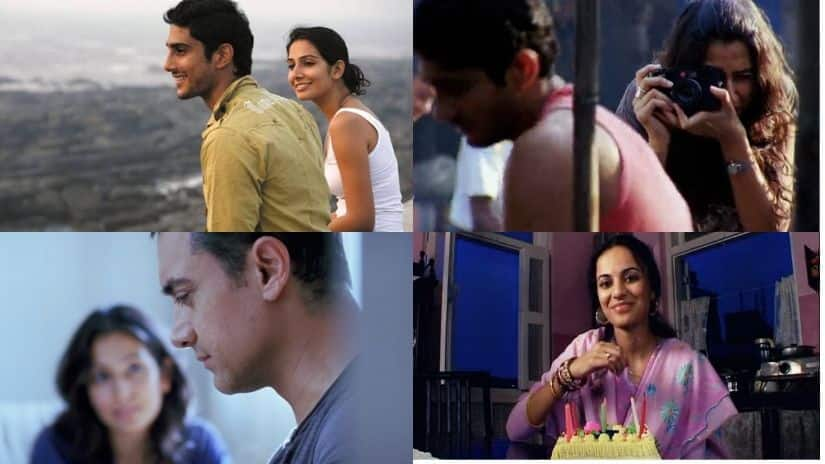 Stills from Dhobi Ghat. Netflix[/caption] Director: Kiran Rao Set in suburban Mumbai, Kiran Rao’s Dhobi Ghat is everything a mainstream movie is expected not to be — it’s slow, subtle, contemplative, and non-linear. Class conflict has for years provided fodder for Bollywood flicks (Maine Pyaar Kiya, Chalte Chalte), but with Dhobi Ghat, there was a genuine, nuanced attempt at exploring the intricacies of socio-economic divide, and how social strata determines intra and inter-class interactions. Dhobi Ghat, Kiran Rao had explained once, was a metaphor for Mumbai. “It is actually a metaphorical title. I feel that Dhobi Ghat (defines) Mumbai… It is representative of Mumbai: clothes from all classes come together and get washed in the same water…That’s the same with people of Mumbai, no matter what class they belong to, you will always see a tinge of Mumbai in them,” she said in an interview. The events in the film are viewed not with the lens of one privileged hero but from the eyes of its protagonists Shai (Monica Dogra), an investment banker and photographer, Munna (Prateik Babbar), her dhobi, or laundryman, a reclusive artist Arun (Aamir Khan) and a young Muslim bride Yasmin (Kriti Malhotra), the previous tenant of the dilapidated house Arun has rented out. There is palpable unease, a distressing silence that pervades the film in every frame. When Munna visits the cushy house of Shai, he is aware that the protagonist of his narrative will not take the Dulhaniya and escape into the lush Swiss Alps. Much like Zoya Akhtar’s Murad (Ranveer Singh in Gully Boy), there is angst to escape the hamster wheel of oppression, but without the rousing dialogues or the tearjerking monologues. Watch it on Netflix here Stanley Ka Dabba (2011) [caption id=“attachment_7821641” align=“alignnone” width=“825”] 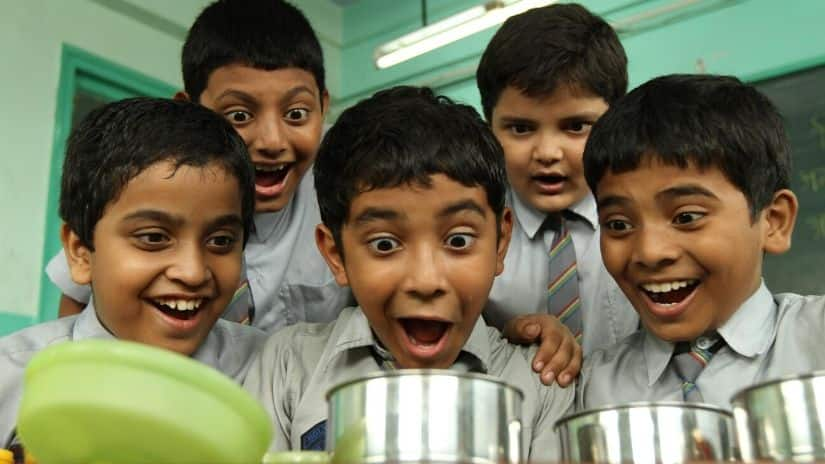 A still from Stanley Ka Dabba. Image from Twitter[/caption] Director: Amole Gupte Amol Gupte’s Stanley Ka Dabba is a sucker punch to the gut. A poignant story about how a fourth-grader concocts stories about his cozy life is as empathetic as it is delightful. Stanley, a young orphan boy working at a restaurant for sustenance, paints a picture of pathos. A sweaty glutton of a school teacher demands him to get his own tiffin box (dabba) to school, which he can then devour. Without a stable home or a caring family, Stanley is left to his own device to tackle the terrorising teacher. The plot is simple, but it conjures up an atmosphere soaked in nostalgia. It lends insight into the bygone school days, of bonds between friends, the teacher-student relationship, the unadulterated innocence of young minds, juxtaposing them the hypocrisy of adulthood and the cruel world that lies outside the school gates. Watch it on Hotstar here _Shanghai_ (2012) [caption id=“attachment_7821571” align=“alignnone” width=“825”] 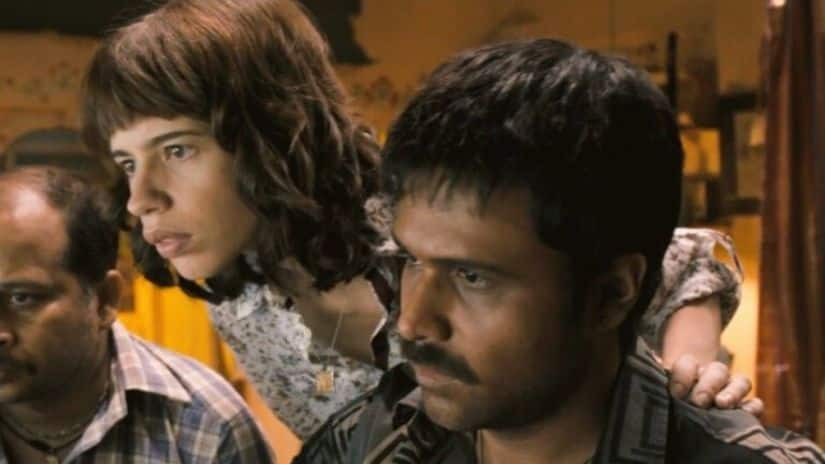 A still from Shanghai. YouTube screengrab[/caption] Director: Dibakar Banerjee Dibakar Banerjee’s bold, guttural political thriller Shanghai is perhaps one of the best case studies that can explain why ‘ art cannot exist in a vacuum.’ The story is centred around Bharat-Nagar ( the quintessential Hindi-speaking town in India that’s hailed as the example of development and progress), a tom-tomming government, and the collective consciousness of the citizens of a nation, which is manipulated, moulded and reshaped to suit the popular, convenient discourse. It’s a biting satire that holds a mirror to society, without a shred of sermonising or high-strung drama. As critic Anupama Chopra pointed out in her review of the film, ‘Shanghai’ is not a city, but an aspirational state of being. It’s a murky territory of grisly politics and how it steamrolls over any individual who dares to rear its head above the muck. While some may argue that Shanghai is a slow burn, it’s an important film that stirs one up from their comfortable existence and incites pertinent questions. What’s more, the top-notch performances of Emraan Hashmi, Abhay Deol, Kalki Koechlin and Prosenjit Chatterjee and the hauntingly melodious music album will ensure that you are glued to your screens till the end credits roll in. Watch it on Netflix here _Ship of Theseus_ (2013) [caption id=“attachment_7821561” align=“alignnone” width=“825”] 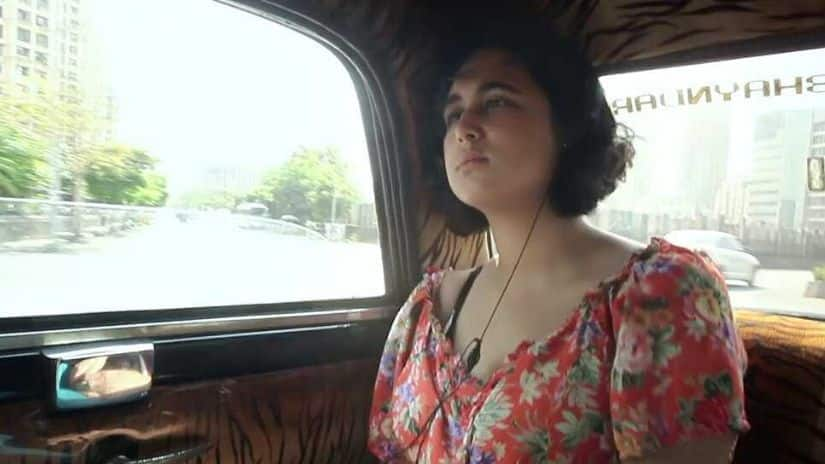 A still from Ship of Theseus. Image from Twitter[/caption] Director: Anand Gandhi Anand Gandhi’s maiden plunge into feature films perhaps qualifies as more of allegorical poetry than a film. Profound and sinuous, Ship of Theseus is an audacious anthology about loss, identity, reality and its simulation in the form of a moral tale. Like Gandhi’s much-celebrated second directorial, Tummbad, Ship of Theseus also finds its roots in folklore. It derives its title from Theseus’ paradox, a hypothesis that raises the question of whether an object remains the same in essence if all its singular parts are replaced. In the film, the ship is the human body and its various organs its components. Gandhi’s ruminations find expression with three different stories — when a blind photographer’s (Egyptian actress Aida Elkashef) vision is restored by a cornea transplant, she faces an inexplicable crisis where she is unable to capture the world to her liking anymore; a monk (Neeraj Kabi) who has been crusading against animal testing is diagnosed with liver cirrhosis and is cast into moral dilemma — whether to stick by his principle or accept death; a stockbroker (Sohum Shah) on a trail to bust a kidney tourism racket. Although steeped in didacticism on universal harmony, Ship of Theseus thrives because of its lyrical narrative and almost transcendental nature. The atmospherics is so captivating that you submit to Gandhi’s steadfast, idealistic vision. Watch it on YouTube here _Ugly_ (2014) [caption id=“attachment_7821631” align=“alignnone” width=“825”] 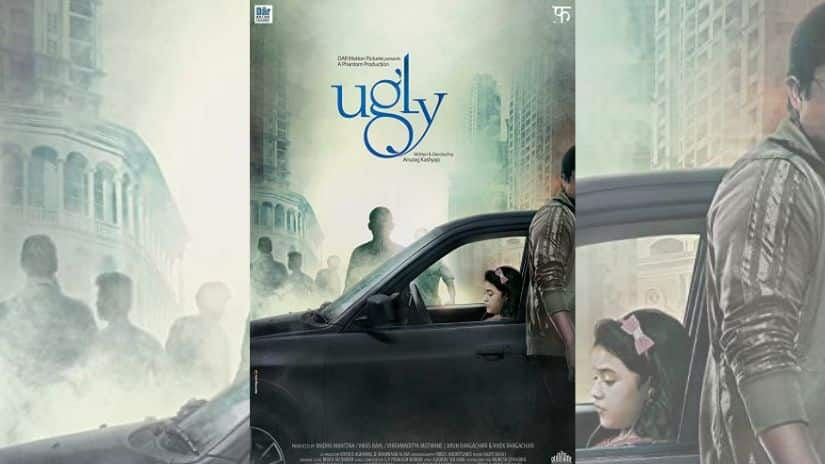 A poster of Ugly. Twitter[/caption] Director: Anurag Kashyap Perhaps one of the most underappreciated works from Anurag Kashyap, Ugly is a grizzly, morbid tale about a chain of events that are unleashed after a little girl is kidnapped. Kashyap is not interested in creating a gripping police procedural; it’s the ugly revelations and the dubious characters that make Ugly a sepulchral study about the inherent complexity of the humankind. With a no-holds-barred disposition, Ugly unravels the deep-seated corruption of its protagonists, as greed, egotism and duplicity take the centre-stage. There is nothing likable about the film’s central characters, the in-your-face violence, or the dirty lanes of Mumbai, where the film is set. There’s absolutely no redemption in Ugly, but it’s this darkness that makes Ugly so impactful. Watch it on Netflix here _Manjhi: The Mountain Man_ (2015) [caption id=“attachment_2401626” align=“alignnone” width=“825”] 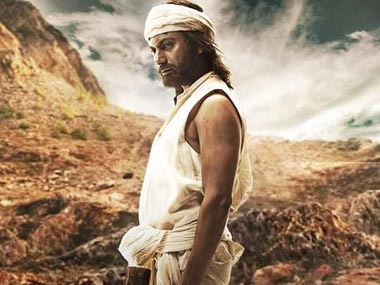 Siddiqui in Manjhi - The Mountain Man. Image Credit: Facebook[/caption] Director: Ketan Mehta Manjhi: The Mountain Man is a feature-length lesson on how biographical dramas should be made. Based on the life of Dashrath Manjhi, a poor labourer in Bihar’s Gehlaur village, the film captures the 22-year-long struggle of a man who carved a path across a mountain with just a hammer and chisel. It’s moving and inspiring, but not in a garish way. Nawazuddin Siddiqui plays the eponymous ‘Mountain Man’ and Radhika Apte his wife, who dies during childbirth due to lack of medical care in the village. Driven by the loss of his wife, Manjhi takes to his chisel, hammering away into the mighty mountain, in the hope that the road he builds will connect the village to the main city one day so that one wouldn’t lose their loved ones over inaccessibility to adequate healthcare. Even though there’s not much drama in the plot, where Mehta excels as a storyteller is imbuing Manjhi with humaneness that lacks in many larger-than-life ‘biopics’ that have released in the last few years. Mehta isn’t shy to admit that his protagonist is a madman, who deserts his own children to an alcoholic grandfather to pursue his dream of making a road. Which is why in a sea of inflated eulogies about grand leaders, it’s important to take note of a slight man who literally moved mountains. Watch it on Netflix here **Nil Battey Sannata (2016)** [caption id=“attachment_7821621” align=“alignnone” width=“825”] 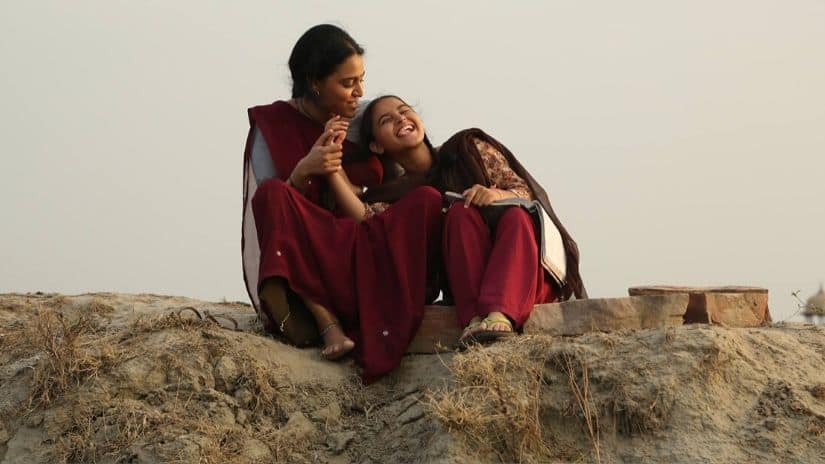 A still from Nil Battey Sannata. Twitter[/caption] Director: Ashwiny Iyer Tiwary Ashwiny Iyer Tiwari’s directorial debut feels like a fuzzy blanket on a cold, winter morning. Starring Swara Bhasker in the best role of her career yet_, Nil Battey Sannata_ is one of the few films in Indian cinema that delves into the relationship between an unlikely mother-daughter pair. Moreover, I can’t think of a Hindi film that has mathematics at its centre, barring that forthcoming Shakuntala Devi biopic with Vidya Balan in the lead. It’s a simple, message-driven film about female emancipation; Nil Battey Sannata is an aspirational fable that underscores the importance of education and how it may help one escape the cobweb of poverty and deprivation. But it is never bogged down by its dogmatic ambitions of hammering the point home. Neither does it descend into overt sentimentality in portraying the protagonists and their daily struggles. If you are in the mood to rewatch some good ol’ Sai Paranjape, Hrishikesh Mukherjee movies this New Year, keep Nil Battey Sannata in that watchlist. Watch it on ZEE5 here **_Gurgaon (2017)_** [caption id=“attachment_7821671” align=“alignnone” width=“825”] 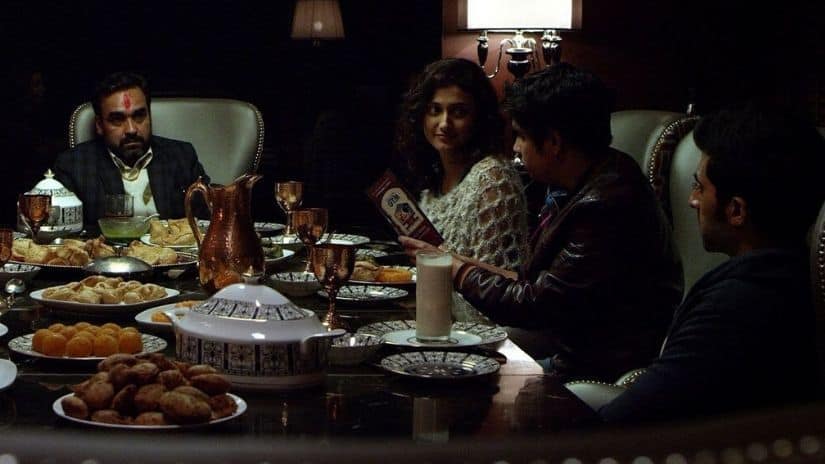 A still from Gurgaon. Twitter[/caption] Director: Shanker Raman Gurgaon is the kind of family drama that Sooraj Barjatya’s (director of Hum Saath Saath Hai, Hum Aapke Hai Koun) world does not accommodate. Shanker Ramen’s neo-noir thriller is relentlessly grim and makes no qualms in showcasing a world of absolute moral corruption. Like Kashyap’s Ugly, Gurgaon is also an abduction tale that peels off the veneer of ‘goodness’ and ’normalcy’ to reveal the innermost vices of people as unforeseen situations spiral out of control. It paints in slate-coloured hues the disparity between the haves and the have-nots, the deep-rooted patriarchy that enables oppression within one’s own family. Watch it here on Netflix _Kaalakaandi_ (2018) [caption id=“attachment_3827249” align=“alignnone” width=“825”] 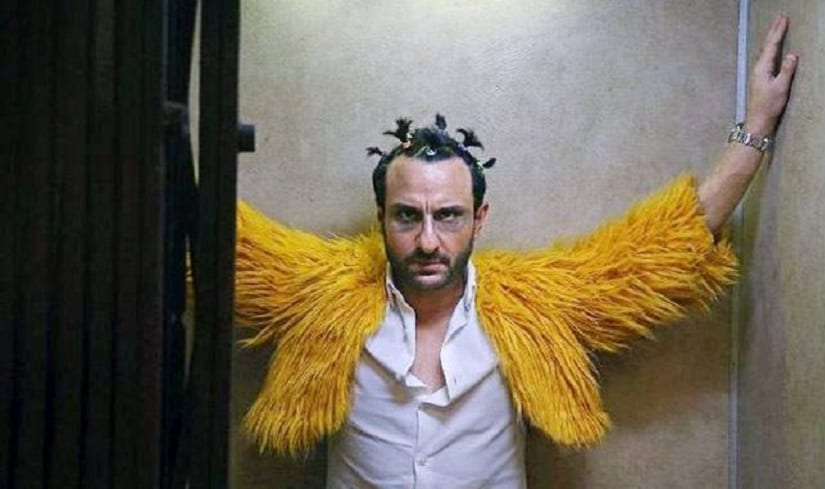 Saif Ali Khan in a still from Kaalakaandi[/caption] Director: Akshat Verma Critics have argued that Kaalakandi, though ambitious in scope, is a far inferior film than Akshat’s earlier directorial, Delhi Belly. While the argument may be true in the context of the film’s pace — Kaalakaandi is definitely not as dynamic as Delhi Belly — but this LSD-laced madcap black comedy is a hoot that is both edgy and experimental. The film recounts the events of one fateful night when a man in his thirties (Saif Ali Khan) learns that he is dying of cancer. His conflicted brother (Akshay Oberoi) cheats on his would-be-wife. Elsewhere, a woman’s (Sobhita Dhulipala) plans of flying to the US is hijacked when she tries to escape a rave party. In another part of the Mumbai, two small-time hoodlums (Vijay Raaz and Deepak Dobriyal) dream of tricking their boss and making a fortune out of stolen cash. Multiple narrative strands unfold simultaneously; in the penultimate moments, their paths criss-cross briefly, altering the course of their lives forever. Despite disparate arcs and a morbid setting, Kaalakaandi remains consistently funny and captivating. It’s is outrageous, brave and promises a hell of a psychedelic ride for those who are ready to strap on their buckles. For others, who have missed Being Cyrus, Chef, Go Goa Gone or Omkara, this is your opportunity to watch Saif Ali Khan deliver a performance of a lifetime. Watch it on Hotstar here. Sonchiriya (2019) [caption id=“attachment_5690101” align=“alignnone” width=“825”] 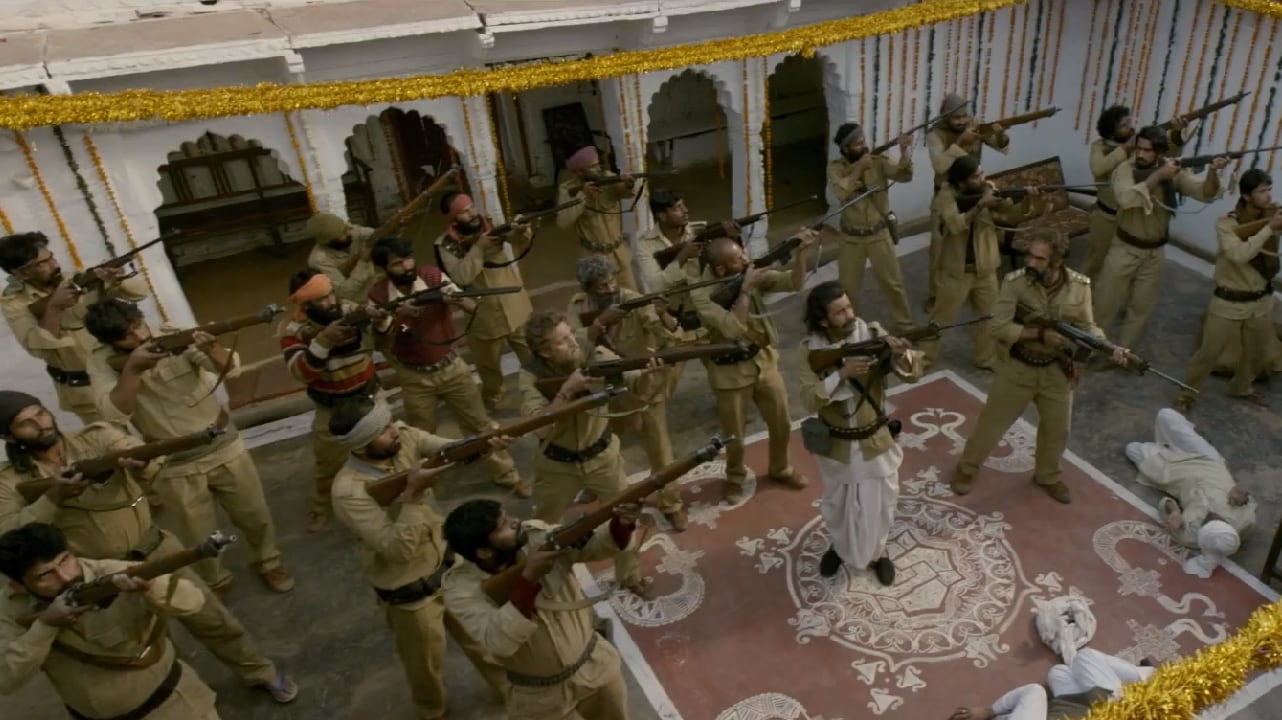 A still from Sonchiriya teaser. YouTube screengrab[/caption] Director: Abhishek Chaubey Gloom, despair and a sense of foreboding pervade the air of Sonchiriya, Abhishek Chaubey’s tale about a rag-tag team of baaghis (rebels) of the arid Chambal valley. Set during the Emergency, the events in Sonchiriya are set off soon after the leader of the baaghi group is hunted down by the police. With police at the tow, the cracks of discord widen between the last-surviving baaghis. These baaghis don’t have sturdy stallions at their disposal, but survive on meagre meals. They are not formidable dacoits, but conflicted individuals with a conscience, looking for salvation. There is not a shred of vanity in portraying the outliers. Nothing is glorified here. The pregnant story aside, the cinematography, the music, the dialogues and the top-notch acting by the lead cast comprising Sushant Singh Rajput, Bhumi Pednekar, Manoj Bajpayee, Ranvir Shorey, Ashutosh Rana, make this film an experience that seeps into the crannies of one’s mind through its carefully-crafted runtime. His earlier directorial Udta Punjab may have gotten all the limelight, but it is his unapologetic, yet sensitive Sonchiriya that deserves attention. Watch it on ZEE5 here
Despite active dialogue surrounding Hindi films in this decade, there are some movies that still haven’t had their moment in the sun, like a Nil Battey Sannata or a Gurgaon
Advertisement
End of Article
Written by Pratishruti Ganguly
Square peg in a round hole (or something else that's equally cliché), bad punner and worse poetess see more


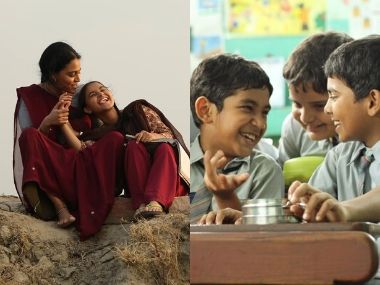)
)
)
)
)
)
)
)
)



